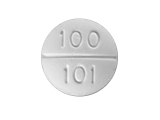Is erectile dysfunction dangerous
Erectile dysfunction (ED) is a common medical condition that affects a large number of men around the world. ED is the inability to achieve or maintain an erection that is sufficient for sexual intercourse. It is a complex issue that can have physical, psychological, or lifestyle causes.
ED is often associated with aging, but it can affect men of all ages. While ED may seem like a minor inconvenience, it can have a significant impact on a man's quality of life. ED can lead to anxiety, depression, and low self-esteem. It can affect a man's relationships and cause tension in his personal life.
Some men may be hesitant to seek medical treatment for ED due to embarrassment or shame. However, it is vital to receive proper diagnosis and treatment if you are experiencing ED. Ignoring the condition can lead to further complications, including cardiovascular disease and other health issues.
In this article, we will explore the causes, symptoms, and treatment options for ED. We will also discuss the potential harms of leaving ED untreated and why seeking medical attention is essential for maintaining overall health and well-being.
The Impact of Erectile Dysfunction on Quality of Life
Sexual Functioning
Erectile dysfunction (ED) can have a significant impact on sexual functioning and relationships. Men with ED may experience decreased sexual desire, difficulty getting and maintaining an erection, and low self-esteem due to their inability to perform sexually. As a result, problems in intimate relationships may arise, leading to stress, anxiety, and depression.
Psychological Well-Being
ED can also affect a man's psychological well-being, leading to feelings of frustration, embarrassment, and shame. This can cause men to avoid sexual encounters altogether, leading to further isolation and decreased quality of life. For some men, ED may also be a symptom of an underlying health condition, such as cardiovascular disease or diabetes, which can further exacerbate mental health issues.
Overall, the impact of ED on quality of life cannot be underestimated. It is essential for men to seek help and treatment for this condition to improve their sexual health and general well-being.
| Ways to Improve Quality of Life |
|---|
|
The Relationship Between Erectile Dysfunction and Cardiovascular Health
Introduction
Erectile dysfunction (ED) has been linked to various cardiovascular diseases. Although ED is commonly associated with sexual problems, it can also be a sign of an underlying vascular condition that affects the circulation of blood to the penis. In this article, we will explore the relationship between ED and cardiovascular health.
Understanding Erectile Dysfunction
ED is the inability to achieve or maintain an erection sufficient for sexual activity. This condition affects millions of men worldwide and can be caused by physical and psychological factors. Physical causes of ED include diabetes, high blood pressure, and heart disease. Psychological causes can include anxiety, depression, and stress.
ED and Cardiovascular Health
ED can be an early sign of cardiovascular disease. In fact, some studies have found that men with ED are more likely to have underlying heart disease. This is because the same factors that cause ED, such as high blood pressure, high cholesterol, and diabetes, can also damage the blood vessels that supply blood to the heart and penis.
Prevention and Treatment
It is essential to identify the underlying cause of ED to prevent further damage to cardiovascular health. This may involve changes in lifestyle, such as regular exercise, a healthy diet, and smoking cessation. Medications, such as sildenafil, tadalafil, and vardenafil, can also help improve ED symptoms by increasing blood flow to the penis.
Conclusion
Erectile dysfunction is not just a sexual problem but can also be a sign of underlying cardiovascular disease. Therefore, it is important to address ED and seek medical advice promptly to prevent further damage to cardiovascular health. A healthy lifestyle and proper medical treatment can help manage ED and promote optimal cardiovascular health.
The Psychological Effects of Erectile Dysfunction
1. Anxiety and Depression
Erectile dysfunction can lead to anxiety and depression, especially in men who value sexual performance as a measure of their masculinity or self-worth. This can cause a cycle of anxiety where a man worries about his performance, which can lead to further erectile dysfunction.
Solutions: Seeking professional help and counseling can be effective in managing these psychological effects of erectile dysfunction. Additionally, discussing the issue with a partner can help alleviate some of the pressure.
2. Relationship Problems
Erectile dysfunction can also cause problems in intimate relationships. It can lead to feelings of inadequacy, rejection, and frustration for both partners. In some cases, the partner of the affected individual may blame themselves for the issue.
Solutions: Open communication with your partner about the issue is vital. Seeking professional help can also be a good option to help both partners manage the psychological effects of erectile dysfunction.
3. Low Self-Esteem
Men with erectile dysfunction can suffer from low self-esteem and feel as though they are not "real men". They may also avoid sexual situations entirely due to fear of failure and embarrassment, which can further inhibit sexual activity.
Solutions: Engaging in activities that boost self-esteem, such as physical exercise or taking on new challenges, can help alleviate some of these negative feelings. Communicating openly with a partner or seeking counseling can also be useful in managing low self-esteem caused by erectile dysfunction.
4. Impact on Quality of Life
Erectile dysfunction can have a negative impact on overall quality of life, including work, friendships, and personal relationships. It can lead to feelings of depression and isolation, which can affect other areas of life.
Solutions: Managing erectile dysfunction through medication, lifestyle changes, or other treatments can improve overall quality of life. Seeking professional help to manage psychological effects can also help.
5. Sexual Addiction
Some men with erectile dysfunction may develop a sexual addiction in an attempt to compensate for their perceived lack of sexual ability. This can lead to further psychological issues and relationship problems.
Solutions: Seeking professional help and counseling can address the underlying issues behind sexual addiction and manage the psychological effects of erectile dysfunction.
| Summary: | Erectile dysfunction can have significant psychological effects on men, including anxiety, depression, relationship problems, low self-esteem, and negative impacts on overall quality of life. Seeking professional help, open communication with a partner, and engaging in self-esteem-boosting activities can help manage these effects. |
Treatment Options for Erectile Dysfunction
Lifestyle Changes
For some men with mild to moderate erectile dysfunction, making certain lifestyle changes can be a helpful first step. This can include things like quitting smoking, reducing alcohol consumption, getting regular exercise, and maintaining a healthy weight. In addition, managing stress and getting enough sleep can also be beneficial.
Oral Medications
For more severe cases of erectile dysfunction, oral medications such as sildenafil (Viagra), tadalafil (Cialis), and vardenafil (Levitra) may be prescribed. These medications work by increasing blood flow to the penis, allowing for an erection to occur. It is important to speak with a healthcare provider before taking any of these medications to ensure they are safe and effective for you.
Injections and Suppositories
In some cases, injections or suppositories may be prescribed for treatment of erectile dysfunction. These medications are inserted into the urethra or injected directly into the penis, and work to increase blood flow. This form of treatment can be uncomfortable, and it is important to speak with a healthcare provider about potential side effects.
Surgical Options
In cases of severe erectile dysfunction that do not respond to other treatments, surgical options may be considered. This can include implantation of a penile prosthesis, which allows for an erection to be achieved by manually pumping fluid into tubes implanted in the penis. This is a more invasive and costly option, and should only be considered after other treatments have been exhausted.
Counseling
In some cases, erectile dysfunction may have psychological causes. In these cases, counseling or therapy may be recommended to help address underlying issues and improve sexual function. This can include exploring the root causes of performance anxiety or relationship problems, and developing coping mechanisms to improve sexual satisfaction.
Alternative Remedies
While there are many alternative remedies and supplements marketed as treatments for erectile dysfunction, it is important to be cautious. Many of these treatments have not been well-studied, and may be ineffective or even harmful. Speak with a healthcare provider before trying any alternative remedies.
| Treatment | Method | Efficacy | Potential Side Effects |
|---|---|---|---|
| Oral Medications | Pill | 70-85% | Headache, flushing, nausea |
| Injections/Suppositories | Inserted into urethra or injected into penis | 70-80% | Pain, bleeding, infection |
| Surgical Options | Implantation of penile prosthesis | Up to 90% | Infection, mechanical failure |
| Counseling | Therapy or counseling | Varies | N/A |
The Importance of Seeking Medical Attention for Erectile Dysfunction
Understanding the Risks
Erectile dysfunction can be an indication of underlying health problems such as diabetes, heart disease, or high blood pressure. It can also cause psychological distress and affect relationships. If left untreated, it can lead to a decreased quality of life and a higher risk of heart attack or stroke.
Diagnosis and Treatment
Seeking medical attention for erectile dysfunction is crucial in order to diagnose and treat any underlying health issues and to properly address the symptoms. Medical professionals may recommend lifestyle changes, such as exercise and a healthier diet, or medication and therapy options.
It’s important to remember that erectile dysfunction is a medical condition that can often be successfully treated with the help of a healthcare provider. Don’t be afraid to seek medical attention and take control of your sexual health.
- Visit a healthcare provider if you notice any persistent issues with achieving or maintaining an erection.
- Be honest and open with your healthcare provider about any symptoms or concerns.
- Follow the treatment plan recommended by your healthcare provider to effectively manage erectile dysfunction.
The Bottom Line
While erectile dysfunction may not be harmful in itself, it can be a symptom of underlying health problems and may cause psychological distress. Seeking medical attention and following recommended treatment plans can help manage symptoms and improve overall quality of life. Don’t hesitate to reach out to a healthcare provider for help.
Preventing Erectile Dysfunction Through Lifestyle Changes
1. Maintain a Healthy Weight
Being overweight or obese can lead to numerous health problems, including erectile dysfunction. Excess weight can cause inflammation, hormonal imbalances, and vascular damage. Maintaining a healthy weight through diet and exercise can help reduce the risk of developing erectile dysfunction.
2. Quit Smoking
Smoking is known to cause numerous health problems, including erectile dysfunction. Smoking damages blood vessels, reduces blood flow, and can lead to the buildup of plaque in the arteries. Quitting smoking can help reverse some of these effects and improve overall sexual health.
3. Limit Alcohol Consumption
Excessive alcohol consumption can lead to erectile dysfunction by reducing blood flow to the penis and causing hormonal imbalances. Limiting alcohol consumption can help improve overall sexual health.
4. Exercise Regularly
Regular exercise can help improve cardiovascular health, increase blood flow, and reduce stress – all factors that can play a role in erectile dysfunction. Exercise can also help improve mood and boost libido.
5. Manage Stress
Stress can cause numerous health problems, including erectile dysfunction. Managing stress through techniques such as meditation, deep breathing exercises, or therapy can help improve overall sexual health.
6. Eat a Healthy Diet
A healthy diet that includes plenty of fruits, vegetables, whole grains, lean proteins, and healthy fats can help improve overall health, including sexual health. Certain foods, such as those high in antioxidants and omega-3 fatty acids, can also help improve blood flow and reduce inflammation.
7. Get Enough Sleep
Not getting enough sleep can lead to numerous health problems, including erectile dysfunction. Getting at least 7-8 hours of sleep per night can help improve overall health and sexual function.
Conclusion
While erectile dysfunction can be a complex condition with numerous potential causes, making lifestyle changes such as those listed above can help reduce the risk of developing the condition. These changes can also improve overall health and wellbeing.
Follow us on Twitter @Pharmaceuticals #Pharmacy
Subscribe on YouTube @PharmaceuticalsYouTube





Be the first to comment on "Is erectile dysfunction dangerous"